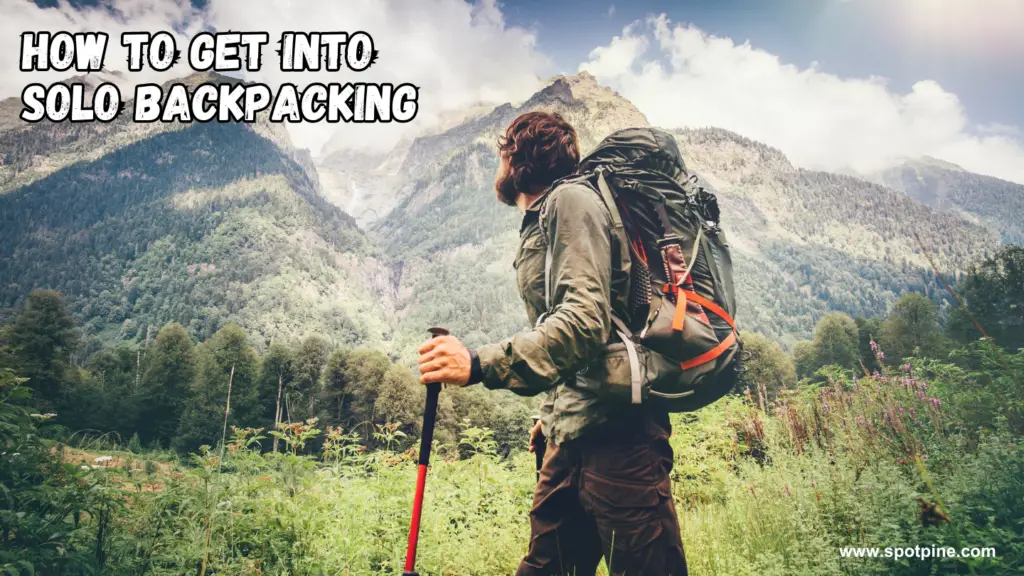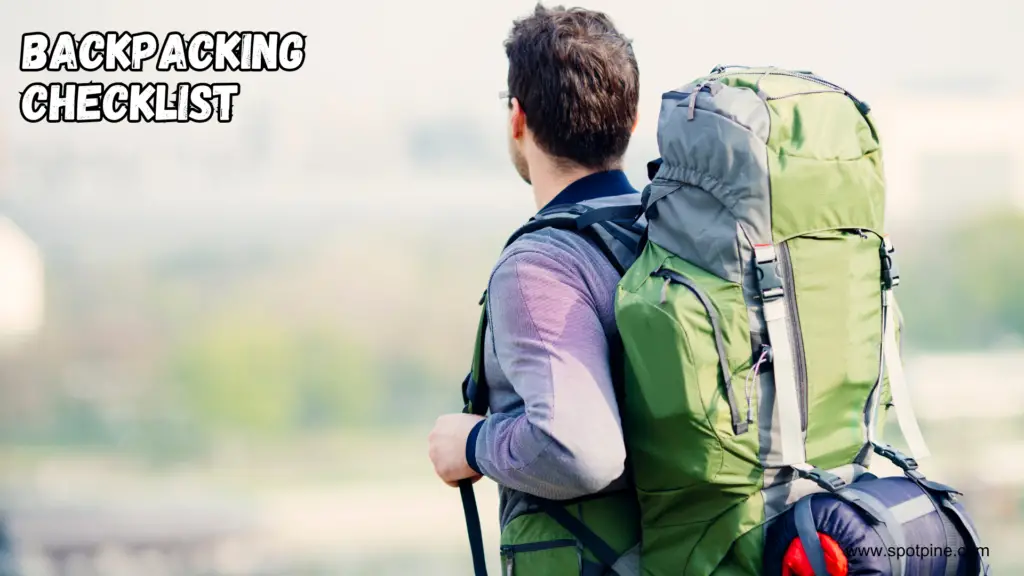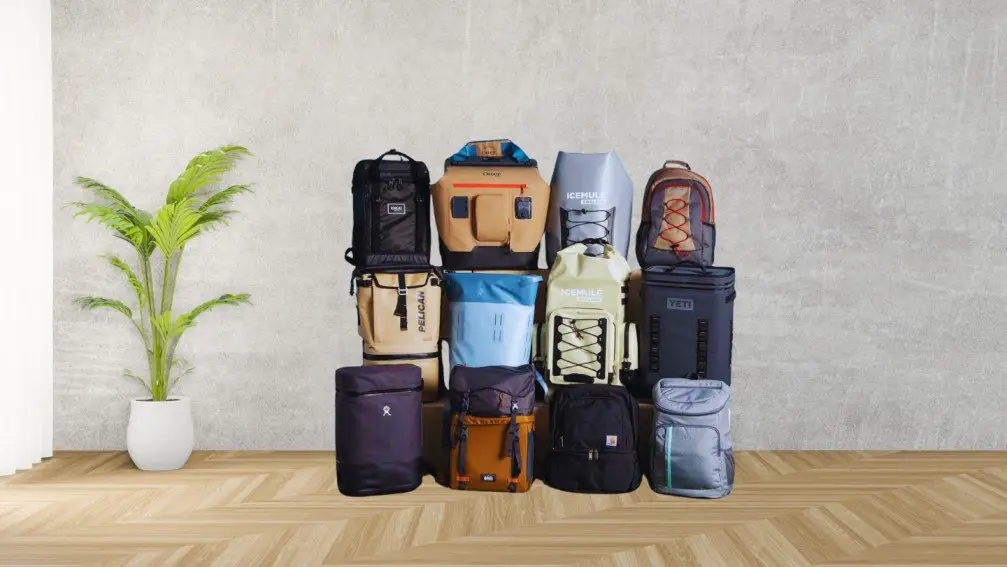To get into solo backpacking, start with smaller and easier trips to gain experience and confidence before moving on to longer and more challenging expeditions. Plan your route, gear up, and do your research to ensure safety and success.
Solo backpacking can be a thrilling and fulfilling way to explore the great outdoors. Whether you’re seeking solitude, adventure, or simply a break from the hectic pace of daily life, hitting the trail solo can offer an unparalleled sense of freedom and accomplishment.
But, as with any outdoor pursuit, solo backpacking requires careful planning, preparation, and a hefty dose of caution. We’ll explore the essential steps to take to get started in solo backpacking and have an unforgettable experience in the wilderness.
Benefits Of Solo Backpacking
Solo backpacking offers the freedom to explore destinations at your own pace and on your own terms. While it is not for beginners and presents unique challenges, starting with smaller, easier trips can help build confidence and gain experience. Research and planning are crucial for staying safe while backpacking alone.
Solo backpacking is an adventure that allows you to travel at your own pace, and experience the freedom of exploring the wilderness alone. It offers a great opportunity for self-discovery and personal growth. The flexibility to travel at your own pace is one of the benefits of solo backpacking. You can set your own itinerary and make changes as you go. Solo backpacking also presents challenges that push you outside your comfort zone. It helps build resilience and self-reliance skills. However, it is crucial to be well-prepared and informed before embarking on a solo backpacking trip. Research, planning and proper gear are key to having a successful adventure. Remember, solo backpacking is not for beginners, and it is important to start with smaller, easier trips to gain experience and confidence.
Preparing For Your First Solo Backpacking Trip
If you’re considering taking your first solo backpacking trip, there are a few things you should keep in mind. Start slowly, with smaller trips to build your experience and confidence, research the necessary gear, and plan your itinerary and route carefully to ensure your safety and enjoyment.
To prepare for your first solo backpacking trip, start with smaller and easier trips to gain experience and build confidence. After a few trips, you’ll figure out what gear feels right for you and what’s best for each trip. Research the gear you need such as a sturdy backpack, a high-quality tent, a water filter, and appropriate clothing. Besides physical gear, make sure to plan your itinerary, understand the cost, and train your body and mind, such as taking a first aid course and practicing meditation. When it comes to safety, always do extensive research on the area you will be backpacking in and make a detailed plan before heading out. Follow safety tips, including carrying a bear spray, leaving a trip plan, and bringing a map. Learning how to backpack alone is an empowering experience but remember to start small and always prioritize your safety.
Essential Gear And Safety Precautions
Eager to try solo backpacking but have concerns about your gear and safety? Worry not, we have you covered. Firstly, choosing the right backpack is crucial. Ensure that it fits well, and has a weight distribution system to prevent back pain. Next, packing essential gear such as a tent, sleeping bag, cooking stove, and food and water, is necessary. Safety-wise, it’s important to research the trail you plan to hike, carry a map and a compass, and have a communication device in case of emergency. Additionally, camp where you feel safe, and avoid camping near trails or ridges where wildlife might lurk. With these tips, you will be better equipped and more confident to embark on your first solo backpacking adventure.

Credit: www.amazon.com
Researching And Planning Your Trip
If you are planning your first solo backpacking trip, researching and planning ahead is crucial for a safe and enjoyable experience. Start by selecting your destination and route based on your level of experience and preferences. It’s also important to understand the terrain and weather, so you can pack accordingly. Research potential hazards such as wildlife encounters or natural disasters in the area and plan accordingly. Communicate your plans and emergency contacts with someone you trust before your trip.
When researching and planning, consider resources such as travel blogs, guidebooks, and local ranger stations for up-to-date information on your destination. Make sure to plan your itinerary and pack essential gear including navigation tools, shelter, food, water, and first-aid supplies. Practice setting up camp and using your gear beforehand to ensure you are comfortable with them. Remember, safety should always be your top priority when backpacking alone.
Make sure to start small with shorter trips to gain experience and confidence before tackling longer, more challenging routes. Always trust your instincts and never push yourself beyond your limits. By taking the time to properly research and plan your solo backpacking trip, you can have a successful and rewarding adventure.
Tips And Advice For First-time Solo Backpackers
Embarking on a solo backpacking trip for the first time can be both exciting and intimidating. Start by easing into it with smaller trips and building your confidence. Research thoroughly, plan your route and gear, and prioritize safety to make the most of your adventure.
| When embarking on your first solo backpacking trip, it can be overwhelming. However, easing into solo travel can be a great way to build your confidence and prepare you for the challenge. Spending a full day alone and starting to do things alone can help to develop self-reliance and navigation skills. Additionally, researching and selecting safe and comfortable campsites is crucial in insuring your safety while on your trip. During your trip, managing mental and emotional challenges can be just as important as physical ones. Remember to distract your brain and camp where you feel safe. Solo backpacking isn’t for beginners, but with proper planning and precautions, it can be a truly rewarding experience. |
Sharing Experiences And Resources
Learn how to get into solo backpacking with these shared experiences and resources by experts who have already done it. From preparation and gear to safety tips and advice for your first time, these tips will help you gain confidence and succeed on your first solo backpacking trip.
| Joining Backpacking Communities and Forums |
| One of the best ways to prepare for a solo backpacking trip is by joining backpacking communities and forums. These groups are filled with experienced backpackers who can provide valuable advice and guidance. They can also recommend helpful resources such as gear reviews, trip reports, and trail maps. You can also ask questions and get feedback on your trip plans from fellow backpackers. |
| Participating in Guided Trips and Workshops |
| If you’re new to backpacking, participating in guided trips and workshops can provide you with valuable experience and knowledge. Guided trips allow you to learn the basics of backpacking from a professional guide, and workshops can teach you specific skills such as navigation, campsite selection, and cooking. These experiences can help you build confidence and prepare you for a successful solo trip. |
| Learning from Expert Backpackers |
| Lastly, learning from expert backpackers can give you insight into their successful experiences. You can read their blog posts, watch their YouTube videos, and listen to their podcasts to gain valuable knowledge about gear selection, trip planning, and trail etiquette. With this information, you can prepare for your solo backpacking trip with confidence, knowing that you have learned from the best. |
Conclusion
To start solo backpacking, one must prepare both physically and mentally. Start small and build experiences to gain confidence. Learn about essential gear and plan the trip accordingly. It’s crucial to research and understand the locations you want to travel to and be prepared for the potential challenges that may arise.
Remember to stay safe and leave a detailed itinerary with someone before embarking on your solo adventure. With enough preparation and the right mindset, solo backpacking can be a life-changing experience.



